March for Our Lives
description: 2018 and 2022 student-led demonstration in Washington, DC
16 results
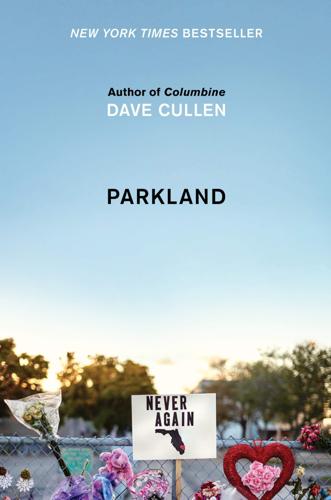
Parkland: Birth of a Movement
by
Dave Cullen
Published 12 Feb 2019
“This Is What We Learned by Counting the Women’s Marches.” Washington Post. February 7, 2017. CNN. Report. August 15, 2018. http://cdn.cnn.com/cnn/2018/images/08/14/rel7b.-.2018.pdf. “Co-Founder of March for Our Lives Cameron Kasky Explains the Mistakes He’s Made & Why He Left March for Our Lives.” Fox News. September 19, 2018. Collie, Tim. “Marjory Stoneman Douglas, ‘Voice of the River.’” Sun-Sentinel. July 12, 2008. Contrera, Jessica. “At the March for Our Lives, You’ll See Her Name Again. But Who Was Marjory Stoneman Douglas?” Washington Post. March 22, 2018. Damasceno, Pedro, and David Morales. “A Student Take: Emma Gonzalez.”
…
The kids wore Change the Ref buttons and wristbands, making sure they were prominent in their photo shoots—to honor Guac, and to spread the word. Emma began embroidering a great big Change the Ref patch, stitching it onto the bomber jacket she would wear at the March for Our Lives, right across her chest, just above where the podium would rise, so millions of eyes would catch it in every shot. Tío Manny added MFOL logos to many of his murals, and wore a March for Our Lives wristband on his left hand, his painting hand, so that all the close-ups would capture their bond. Each group understood branding and cross-promotion. They wanted to convey how deeply they supported each other—to the public, and to each other.
…
A week later, I asked about school, and she groaned. “Oh God. It feels like a side project for me now. Every year of my life it would’ve been my main priority, and now it kind of feels like an extracurricular. Every day I go to school, and then I go work on March for Our Lives for the rest of my night. I don’t really know what my main thing is, but I’m pretty sure it’s March for Our Lives.” As she looked forward into a gloriously uncharted future, and wistfully back at the past—at the crazy summer on a tour bus, and the thousands of aspiring activists pouring into her life—a single face stood out. Jackie had met Natalie Barden at the Teen Vogue summit in June.
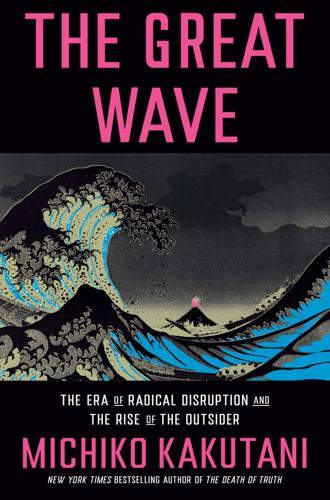
The Great Wave: The Era of Radical Disruption and the Rise of the Outsider
by
Michiko Kakutani
Published 20 Feb 2024
GO TO NOTE REFERENCE IN TEXT More than four million people: Erica Chenoweth and Jeremy Pressman, “This Is What We Learned by Counting the Women’s Marches,” The Washington Post, Feb. 7, 2017, washingtonpost.com/news/monkey-cage/wp/2017/02/07/this-is-what-we-learned-by-counting-the-womens-marches/. GO TO NOTE REFERENCE IN TEXT At least 1.2 million people turned out: German Lopez, “It’s Official: March for Our Lives Was One of the Biggest Youth Protests Since the Vietnam War,” Vox, Mar. 26, 2018, vox.com/policy-and-politics/2018/3/26/17160646/march-for-our-lives-crowd-size-count/. GO TO NOTE REFERENCE IN TEXT A 2018 Washington Post poll: Mary Jordan and Scott Clement, “Rallying Nation,” The Washington Post, Apr. 6, 2018, washingtonpost.com/news/national/wp/2018/04/06/feature/in-reaction-to-trump-millions-of-americans-are-joining-protests-and-getting-political/.
…
BLM demonstrations formed only one of many waves of protest during the Trump era. More than four million people, The Washington Post estimated, participated in the women’s marches held on January 21, 2017, in more than six hundred American cities. At least 1.2 million people turned out to protest gun violence at March for Our Lives rallies in 2018—the biggest youth-led protests since the Vietnam War years. Tens of thousands of protesters marched in dozens of cities in support of LGBTQ+ rights. And some two hundred tribes joined the Standing Rock Sioux in opposing Trump’s efforts to get the Army Corps of Engineers to override environmental reviews and finish construction of the Dakota Access Pipeline, which would have threatened the local water supply and ancestral burial grounds.
…
Digital natives who grew up with smartphones, these young people have already demonstrated their skill at bringing activism into the internet age, using social media to organize demonstrations and boycotts, circulate petitions, and link to policy discussions and legislative calendars. In 2018, the Parkland students organized the huge March for Our Lives protests in just five weeks and, in doing so, reenergized a stalled gun control movement. It was also their determination and passion that inspired then-fifteen-year-old Greta Thunberg to start a climate strike outside the Swedish parliament building later that year—which would help lead to the climate demonstrations of 2019, when some four million people turned out across the globe.
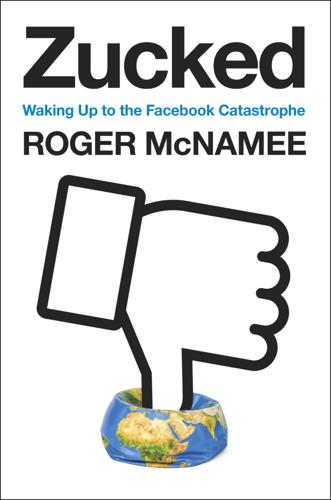
Zucked: Waking Up to the Facebook Catastrophe
by
Roger McNamee
Published 1 Jan 2019
Communication matters, but so does thoughtful consideration of facts, of candidates, and of policy options, none of which is easy on Facebook. When it comes to democracy, Facebook does a few things very well. It enables communication of ideas, as well as the organization of events. We have seen Black Lives Matter, the Women’s March, Indivisible, and the March for Our Lives all leverage Facebook to bring people together. The same thing happened in Tunisia and Egypt at the start of the Arab Spring. Unfortunately, the things Facebook does well are only a small part of the democracy equation. According to Stanford professor Larry Diamond, there are four pillars of democracy: Free and fair elections; Active participation of the people, as citizens, in civic life; Protection of the human rights of all citizens; Rule of law, in which the laws and procedures apply equally to all citizens.
…
At least a third of the US population identifies with ideas that are demonstrably untrue, and a far larger number have no regular interaction with people who disagree with them or have a radically different life experience. I do not see how technology can fix that. Somehow we have to change our culture to make civic engagement a priority. If Black Lives Matter, the Women’s March, Indivisible, and the March for Our Lives are any indication, the process has already begun. Unfortunately, these important efforts in activism address only a portion of the political spectrum, and their success to date has hardened resistance on the other side. * * * — WHEN THE TECH INDUSTRY finally had enough processing, storage, memory, and bandwidth to deliver seamless, real-time video, audio, and texts, it transformed the nature of digital experiences.
…
The platforms act as though users will be too preoccupied to look out for their own self-interest, to insist on dramatic change. Let’s prove them wrong. Parents, users, and concerned citizens can make their voices heard. We live at a time when citizens are coming together to bring about change. The effective collective action by Black Lives Matter, the March for Our Lives, the Women’s March, and Indivisible should inspire us. All of them use Facebook to organize events, which would be poetic justice in this case. Bringing people together in the real world is the perfect remedy for addiction to internet platforms. If we can do that, the world will be a better place.
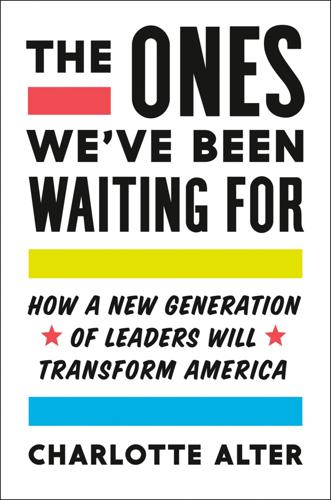
The Ones We've Been Waiting For: How a New Generation of Leaders Will Transform America
by
Charlotte Alter
Published 18 Feb 2020
“They say a good guy with a gun stops a bad guy with a gun: we call BS.” . . . RUBIO: GUN LAWS WOULDN’T HAVE PREVENTED PARKLAND . . . @Sarahchadwickk: We should change the names of AR-15s to “Marco Rubio” because they are so easy to buy . . . STUDENTS LEAD HUGE RALLIES FOR GUN CONTROL ACROSS THE U.S.: For many of the young people, the Washington rally, called March for Our Lives, was their first act of protest and the beginning of a political awakening. . . . AFTER PARKLAND, STATES PASS 50 NEW GUN LAWS: States across the country, including 14 with Republican governors, enacted 50 new laws restricting access to guns . . . PARKLAND SHOOTING SURVIVORS RELEASE AMBITIOUS GUN CONTROL PLAN. . . .
…
Bush, or were in elementary school during Obama’s 2008 campaign—Donald Trump’s election would be one of the first major political moments of their young lives. They would remember it forever. Much of Gen Z was too young to vote, but they still participated. Middle and elementary school kids brought homemade signs to the Women’s March, looking around a sea of terrified and furious adults. Teenage activists led the March for Our Lives protests against gun violence in the wake of the shooting at Marjory Stoneman Douglas High School. Students poured into the streets for the Global Climate Strike, led by sixteen-year-old Greta Thunberg. College kids mobilized first-time voters to massively increase their turnout in the 2018 midterms.
…
AFTER PARKLAND, STATES PASS: Matt Vasilogambros, “After Parkland, States Pass 50 New Gun-Control Laws,” Pew Research Center, August 2, 2018, pewtrusts.org/en/research-and-analysis/blogs/stateline/2018/08/02/after-parkland-states-pass-50-new-gun-control-laws. PARKLAND SHOOTING SURVIVORS RELEASE: Adeel Hassan, “Parkland Shooting Survivors Release Ambitious Gun Control Plan,” The New York Times, August, 21, 2019, nytimes.com/2019/08/21/us/march-for-our-lives-gun-control.html, @davidhogg111: Tweet, August 21, 2019, twitter.com/davidhogg111/status/1164114156364161025. CHAPTER 17: DEFEND, DISTANCE, DEFECT, OR DEFEAT the rest were in the middle: Pew Research, “The Generation Gap in American Politics,” March 1, 2018, people-press.org/2018/03/01/the-generation-gap-in-american-politics/.
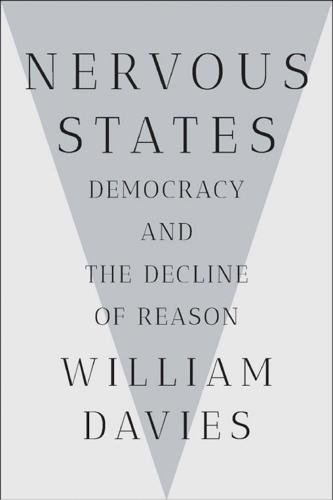
Nervous States: Democracy and the Decline of Reason
by
William Davies
Published 26 Feb 2019
And yet the feeling of vulnerability often has wildly different consequences. In recent history, what has mobilized crowds has more often been opposition to violence than desire for it. Civil rights and anti-war movements have produced many of the largest marches of the postwar era. The 2018 March For Our Lives rallies, held to protest against weak gun laws following the attack at a high school in Parkland, Florida, drew hundreds of thousands of people into the streets. In the face of violence, these crowds channel a different emotion, defiant but unwarlike, bringing a mass of bodies together as evidence of shared humanity rather than of collective threat.
…
Kennedy International Airport, New York, x, xiii, 41 Johns Hopkins University, 176 Jones, Alexander, 131 Kant, Immanuel, 128, 130 Kemelmacher-Shlizerman, Ira, 188 Kennedy Jr., Robert, 23 Kepler, Johannes, 35 Keynes, John Maynard, 165 King Jr., Martin Luther, 21, 224 knowledge economy, 84, 85, 88, 151–2, 217 known knowns, 132, 138 Koch, Charles and David, 154, 164, 174 Korean War (1950–53), 178 Kraepelin, Emil, 139 Kurzweil, Ray, 183–4 Labour Party, 5, 6, 65, 80, 81, 221 Lagarde, Christine, 64 Le Bon, Gustave, 8–12, 13, 15, 16, 20, 24, 25, 38 Le Pen, Marine, 27, 79, 87, 92, 101–2 Leadbeater, Charles, 84 Leeds, West Yorkshire, 85 Leicester, Leicestershire, 85 Leviathan (Hobbes), 34, 39, 45 liberal elites, 20, 58, 88, 89, 161 libertarianism, 15, 151, 154, 158, 164, 173, 196, 209, 226 Liberty Fund, 158 Libya, 143 lie-detection technology, 136 life expectancy, 62, 68–71, 72, 92, 100–101, 115, 224 Lindemann, Frederick Alexander, 1st Viscount Cherwell, 138 Lloyds Bank, 29 London, England bills of mortality, 68–71, 75, 79–80, 81, 89, 127 Blitz (1940–41), 119, 143, 180 EU referendum (2016), 85 Great Fire (1666), 67 Grenfell Tower fire (2017), 10 and gross domestic product (GDP), 77, 78 housing crisis, 84 insurance sector, 59 knowledge economy, 84 life expectancy, 100 newspapers, early, 48 Oxford Circus terror scare (2017), ix–x, xiii, 41 plagues, 67–71, 75, 79–80, 81, 89, 127 Unite for Europe march (2017), 23 London School of Economics (LSE), 160 loss aversion, 145 Louis XIV, King of France, 73, 127 Louisiana, United States, 151, 221 Ludwig von Mises Institute, 154 MacLean, Nancy, 158 Macron, Emmanuel, 33 mainstream media, 197 “Make America Great Again,” 76, 145 Manchester, England, 85 Mann, Geoff, 214 maps, 182 March For Our Lives (2018), 21 March for Science (2017), 23–5, 27, 28, 210, 211 marketing, 14, 139–41, 143, 148, 169 Mars, 175, 226 Marxism, 163 Massachusetts Institute of Technology (MIT), 179 Mayer, Jane, 158 McCarthy, Joseph, 137 McGill Pain Questionnaire, 104 McKibben, William “Bill,” 213 Megaface, 188–9 memes, 15, 194 Menger, Carl, 154 mental illness, 103, 107–17, 139 mercenaries, 126 Mercer, Robert, 174, 175 Mexico, 145 Million-Man March (1995), 4 mind-reading technology, 136 see also telepathy Mirowski, Philip, 158 von Mises, Ludwig, 154–63, 166, 172, 173 Missing Migrants Project, 225 mobilization, 5, 7, 126–31 and Corbyn, 81 and elections, 81, 124 and experts, 27–8 and Internet, 15 and Le Bon’s crowd psychology, 11, 12, 16, 20 and loss, 145 and Napoleonic Wars, xv, 127–30, 141, 144 and Occupy movement, 5 and populism, 16, 22, 60 and violence, opposition to, 21 Moniteur Universel, Le, 142 monopoly on violence, 42 Mont Pelerin Society, 163, 164 moral emotion, 21 morphine, 105 multiculturalism, 84 Murs, Oliver “Olly,” ix Musk, Elon, 175, 176, 178, 183, 226 Nanchang, Jiangxi, 13 Napoleonic Wars (1803–15), 126–30 chappe system, 129, 182 and conscription, 87, 126–7, 129 and disruption, 170–71, 173, 174, 175, 226 and great leader ideal, 146–8 and intelligence, 134 and mobilization, xv, 126–30, 141, 144 and nationalism, 87, 128, 129, 144, 183, 211 and propaganda, 142 Russia, invasion of (1812), 128, 133 Spain, invasion of (1808), 128 National Aeronautics and Space Administration (NASA), 23, 175 National Audit Office (NAO), 29–30 national citizenship, 71 National Defense Research Committee, 180 National Health Service (NHS), 30, 93 National Park Service, 4 National Security Agency (NSA), 152 national sovereignty, 34, 53 nationalism, 87, 141, 210–12 and conservatism, 144 and disempowerment, 118–19 and elites, 22–3, 60–61, 145 ethnic, 15 and health, 92, 211–12, 224 and imagined communities, 87 and inequality, 78 and loss, 145 and markets, 167 and promises, 221 and resentment, 145, 197, 198 and war, 7, 20–21, 118–19, 143–6, 210–11 nativism, 61 natural philosophy, 35–6 nature, 86 see also environment Nazi Germany (1933–45), 137, 138, 154 Netherlands, 48, 56, 129 Neurable, 176 neural networking, 216 Neuralink, 176 neurasthenia, 139 Neurath, Otto, 153–4, 157, 160 neurochemistry, 108, 111, 112 neuroimaging, 176–8, 181 Nevada, United States, 194 new atheism, 209 New Orleans, Louisiana, 151 New Right, 164 New York, United States and climate change, 205 and gross domestic product (GDP), 78 housing crisis, 84 JFK Airport terror scare (2016), x, xiii, 41 knowledge economy, 84 September 11 attacks (2001), 17, 18 New York Times, 3, 27, 85 newspapers, 48, 71 Newton, Isaac, 35 Nietzsche, Friedrich, 217 Nixon, Robert, 206 no-platforming, 22, 208 Nobel Prize, 158–9 non-combatants, 43, 143, 204 non-violence, 224 North Atlantic Treaty Organization (NATO), 123, 145, 214 North Carolina, United States, 84 Northern Ireland, 43, 85 Northern League, 61 Northern Rock, 29 Norwich, Norfolk, 85 nostalgia, xiv, 143, 145, 210, 223 “Not in my name,” 27 nuclear weapons, 132, 135, 137, 180, 183, 192, 196, 204 nudge techniques, 13 Obama, Barack, 3, 24, 76, 77, 79, 158, 172 Obamacare, 172 objectivity, xiv, 13, 75, 136, 223 and crowd-based politics, 5, 7, 24–5 and death, 94 and Descartes, 37 and experts, trust in, 28, 32, 33, 51, 53, 64, 86, 89 and Hayek, 163, 164, 170 and markets, 169, 170 and photography, 8 and Scientific Revolution, 48, 49 and statistics, 72, 74, 75, 82, 88 and telepathic communication, 179 and war, 58, 125, 134, 135, 136, 146 Occupy movement, 5, 10, 24, 61 Oedipus complex, 109 Office for National Statistics, 63, 133 Ohio, United States, 116 oil crisis (1973), 166 “On Computable Numbers” (Turing), 181 On War (Clausewitz), 130 Open Society and Its Enemies, The (Popper), 171 opiates, 105, 116, 172–3 opinion polling, 65, 80–81, 191 Orbán, Viktor, 87, 146 Organisation for Economic Co-operation and Development (OECD), 72 Oxford, Oxfordshire, 85 Oxford Circus terror scare (2017), ix–x, xiii, 41 Oxford University, 56, 151 OxyContin, 105, 116 pacifism, 8, 20, 44, 151 pain, 102–19, 172–3, 224 see also chronic pain painkillers, 104, 105, 116, 172–3 Palantir, 151, 152, 175, 190 parabiosis, 149 Paris climate accord (2015), 205, 207 Paris Commune (1871), 8 Parkland attack (2018), 21 Patriot Act (2001), 137 Paul, Ronald, 154 PayPal, 149 Peace of Westphalia (1648), 34, 53 peer reviewing, 48, 139, 195, 208 penicillin, 94 Pentagon, 130, 132, 135, 136, 214, 216 pesticides, 205 Petty, William, 55–9, 67, 73, 85, 167 pharmacology, 142 Pielke Jr., Roger, 24, 25 Piketty, Thomas, 74 Pinker, Stephen, 207 plagues, 56, 67–71, 75, 79–80, 81, 89, 95 pleasure principle, 70, 109, 110, 224 pneumonia, 37, 67 Podemos, 5, 202 Poland, 20, 34, 60 Polanyi, Michael, 163 political anatomy, 57 Political Arithmetick (Petty), 58, 59 political correctness, 20, 27, 145 Popper, Karl, 163, 171 populism xvii, 211–12, 214, 220, 225–6 and central banks, 33 and crowd-based politics, 12 and democracy, 202 and elites/experts, 26, 33, 50, 152, 197, 210, 215 and empathy, 118 and health, 99, 101–2, 224–5 and immediate action, 216 in Kansas (1880s), 220 and markets, 167 and private companies, 174 and promises, 221 and resentment, 145 and statistics, 90 and unemployment, 88 and war, 148, 212 Porter, Michael, 84 post-traumatic stress disorder (PTSD), 111–14, 117, 209 post-truth, 167, 224 Potsdam Conference (1945), 138 power vs. violence, 19, 219 predictive policing, 151 presidential election, US (2016), xiv and climate change, 214 and data, 190 and education, 85 and free trade, 79 and health, 92, 99 and immigration, 79, 145 and inequality, 76–7 and Internet, 190, 197, 199 “Make America Great Again,” 76, 145 and opinion polling, 65, 80 and promises, 221 and relative deprivation, 88 and Russia, 199 and statistics, 63 and Yellen, 33 prisoners of war, 43 promises, 25, 31, 39–42, 45–7, 51, 52, 217–18, 221–2 Propaganda (Bernays), 14–15 propaganda, 8, 14–16, 83, 124–5, 141, 142, 143 property rights, 158, 167 Protestantism, 34, 35, 45, 215 Prussia (1525–1947), 8, 127–30, 133–4, 135, 142 psychiatry, 107, 139 psychoanalysis, 107, 139 Psychology of Crowds, The (Le Bon), 9–12, 13, 15, 16, 20, 24, 25 psychosomatic, 103 public-spending cuts, 100–101 punishment, 90, 92–3, 94, 95, 108 Purdue, 105 Putin, Vladimir, 145, 183 al-Qaeda, 136 quality of life, 74, 104 quantitative easing, 31–2, 222 quants, 190 radical statistics, 74 RAND Corporation, 183 RBS, 29 Reagan, Ronald, 15, 77, 154, 160, 163, 166 real-time knowledge, xvi, 112, 131, 134, 153, 154, 165–70 Reason Foundation, 158 Red Vienna, 154, 155 Rees-Mogg, Jacob, 33, 61 refugee crisis (2015–), 60, 225 relative deprivation, 88 representative democracy, 7, 12, 14–15, 25–8, 61, 202 Republican Party, 77, 79, 85, 154, 160, 163, 166, 172 research and development (R&D), 133 Research Triangle, North Carolina, 84 resentment, 5, 226 of elites/experts, 32, 52, 61, 86, 88–9, 161, 186, 201 and nationalism/populism, 5, 144–6, 148, 197, 198 and pain, 94 Ridley, Matt, 209 right to remain silent, 44 Road to Serfdom, The (Hayek), 160, 166 Robinson, Tommy, ix Roosevelt, Franklin Delano, 52 Royal Exchange, 67 Royal Society, 48–52, 56, 68, 86, 133, 137, 186, 208, 218 Rumsfeld, Donald, 132 Russian Empire (1721–1917), 128, 133 Russian Federation (1991–) and artificial intelligence, 183 Gerasimov Doctrine, 43, 123, 125, 126 and information war, 196 life expectancy, 100, 115 and national humiliation, 145 Skripal poisoning (2018), 43 and social media, 15, 18, 199 troll farms, 199 Russian Revolution (1917), 155 Russian SFSR (1917–91), 132, 133, 135–8, 155, 177, 180, 182–3 safe spaces, 22, 208 Sands, Robert “Bobby,” 43 Saxony, 90 scarlet fever, 67 Scarry, Elaine, 102–3 scenting, 135, 180 Schneier, Bruce, 185 Schumpeter, Joseph, 156–7, 162 Scientific Revolution, 48–52, 62, 66, 95, 204, 207, 218 scientist, coining of term, 133 SCL, 175 Scotland, 64, 85, 172 search engines, xvi Second World War, see World War II securitization of loans, 218 seismology, 135 self-employment, 82 self-esteem, 88–90, 175, 212 self-harm, 44, 114–15, 117, 146, 225 self-help, 107 self-interest, 26, 41, 44, 61, 114, 141, 146 Semi-Automatic Ground Environment (SAGE), 180, 182, 200 sentiment analysis, xiii, 12–13, 140, 188 September 11 attacks (2001), 17, 18 shell shock, 109–10 Shrecker, Ted, 226 Silicon Fen, Cambridgeshire, 84 Silicon Valley, California, xvi, 219 and data, 55, 151, 185–93, 199–201 and disruption, 149–51, 175, 226 and entrepreneurship, 149–51 and fascism, 203 and immortality, 149, 183–4, 224, 226 and monopolies, 174, 220 and singularity, 183–4 and telepathy, 176–8, 181, 185, 186, 221 and weaponization, 18, 219 singularity, 184 Siri, 187 Skripal poisoning (2018), 43 slavery, 59, 224 smallpox, 67 smart cities, 190, 199 smartphone addiction, 112, 186–7 snowflakes, 22, 113 social indicators, 74 social justice warriors (SJWs), 131 social media and crowd psychology, 6 emotional artificial intelligence, 12–13, 140–41 and engagement, 7 filter bubbles, 66 and propaganda, 15, 18, 81, 124 and PTSD, 113 and sentiment analysis, 12 trolls, 18, 20–22, 27, 40, 123, 146, 148, 194–8, 199, 209 weaponization of, 18, 19, 22, 194–5 socialism, 8, 20, 154–6, 158, 160 calculation debate, 154–6, 158, 160 Socialism (Mises), 160 Society for Freedom in Science, 163 South Africa, 103 sovereignty, 34, 53 Soviet Russia (1917–91), 132, 133, 135–8, 177, 180, 182–3 Spain, 5, 34, 84, 128, 202 speed of knowledge, xvi, 112, 124, 131, 134, 136, 153, 154, 165–70 Spicer, Sean, 3, 5 spy planes, 136, 152 Stalin, Joseph, 138 Stanford University, 179 statactivism, 74 statistics, 62–91, 161, 186 status, 88–90 Stoermer, Eugene, 206 strong man leaders, 16 suicide, 100, 101, 115 suicide bombing, 44, 146 superbugs, 205 surveillance, 185–93, 219 Sweden, 34 Switzerland, 164 Sydenham, Thomas, 96 Syriza, 5 tacit knowledge, 162 talking cure, 107 taxation, 158 Tea Party, 32, 50, 61, 221 technocracy, 53–8, 59, 60, 61, 78, 87, 89, 90, 211 teenage girls, 113, 114 telepathy, 39, 176–9, 181, 185, 186 terrorism, 17–18, 151, 185 Charlottesville attack (2017), 20 emergency powers, 42 JFK Airport terror scare (2016), x, xiii, 41 Oxford Circus terror scare (2017), ix–x, xiii, 41 September 11 attacks (2001), 17, 18 suicide bombing, 44, 146 vehicle-ramming attacks, 17 war on terror, 131, 136, 196 Thames Valley, England, 85 Thatcher, Margaret, 154, 160, 163, 166 Thiel, Peter, 26, 149–51, 153, 156, 174, 190 Thirty Years War (1618–48), 34, 45, 53, 126 Tokyo, Japan, x torture, 92–3 total wars, 129, 142–3 Treaty of Westphalia (1648), 34, 53 trends, xvi, 168 trigger warnings, 22, 113 trolls, 18, 20–22, 27, 40, 123, 146, 148, 194–8, 199, 209 Trump, Donald, xiv and Bannon, 21, 60–61 and climate change, 207 and education, 85 election campaign (2016), see under presidential election, US and free trade, 79 and health, 92, 99 and immigration, 145 inauguration (2017), 3–5, 6, 9, 10 and inequality, 76–7 “Make America Great Again,” 76, 145 and March for Science (2017), 23, 24, 210 and media, 27 and opinion polling, 65, 80 and Paris climate accord, 207 and promises, 221 and relative deprivation, 88 and statistics, 63 and Yellen, 33 Tsipras, Alexis, 5 Turing, Alan, 181, 183 Twitter and Corbyn’s rallies, 6 and JFK Airport terror scare (2016), x and Oxford Circus terror scare (2017), ix–x and Russia, 18 and sentiment analysis, 188 and trends, xvi and trolls, 194, 195 Uber, 49, 185, 186, 187, 188, 191, 192 UK Independence Party, 65, 92, 202 underemployment, 82 unemployment, 61, 62, 72, 78, 81–3, 87, 88, 203 United Kingdom austerity, 100 Bank of England, 32, 33, 64 Blitz (1940–41), 119, 143, 180 Brexit (2016–), see under Brexit Cameron government (2010–16), 33, 73, 100 Center for Policy Studies, 164 Civil Service, 33 climate-gate (2009), 195 Corbyn’s rallies, 5, 6 Dunkirk evacuation (1940), 119 education, 85 financial crisis (2007–9), 29–32, 100 first past the post, 13 general election (2015), 80, 81 general election (2017), 6, 65, 80, 81, 221 Grenfell Tower fire (2017), 10 gross domestic product (GDP), 77, 79 immigration, 63, 65 Irish hunger strike (1981), 43 life expectancy, 100 National Audit Office (NAO), 29 National Health Service (NHS), 30, 93 Office for National Statistics, 63, 133 and opiates, 105 Oxford Circus terror scare (2017), ix–x, xiii, 41 and pain, 102, 105 Palantir, 151 Potsdam Conference (1945), 138 quantitative easing, 31–2 Royal Society, 138 Scottish independence referendum (2014), 64 Skripal poisoning (2018), 43 Society for Freedom in Science, 163 Thatcher government (1979–90), 154, 160, 163, 166 and torture, 92 Treasury, 61, 64 unemployment, 83 Unite for Europe march (2017), 23 World War II (1939–45), 114, 119, 138, 143, 180 see also England United Nations, 72, 222 United States Bayh–Dole Act (1980), 152 Black Lives Matter, 10, 225 BP oil spill (2010), 89 Bush Jr. administration (2001–9), 77, 136 Bush Sr administration (1989–93), 77 Bureau of Labor, 74 Central Intelligence Agency (CIA), 3, 136, 151, 199 Charlottesville attack (2017), 20 Civil War (1861–5), 105, 142 and climate change, 207, 214 Clinton administration (1993–2001), 77 Cold War, see Cold War Defense Advanced Research Projects Agency (DARPA), 176, 178 Defense Intelligence Agency, 177 drug abuse, 43, 100, 105, 115–16, 131, 172–3 education, 85 Federal Bureau of Investigation (FBI), 137 Federal Reserve, 33 Fifth Amendment (1789), 44 financial crisis (2007–9), 31–2, 82, 158 first past the post, 13 Government Accountability Office, 29 gross domestic product (GDP), 75–7, 82 health, 92, 99–100, 101, 103, 105, 107, 115–16, 158, 172–3 Heritage Foundation, 164, 214 Iraq War (2003–11), 74, 132 JFK Airport terror scare (2016), x, xiii, 41 Kansas populists (1880s), 220 libertarianism, 15, 151, 154, 158, 164, 173 life expectancy, 100, 101 March For Our Lives (2018), 21 March for Science (2017), 23–5, 27, 28, 210 McCarthyism (1947–56), 137 Million-Man March (1995), 4 National Aeronautics and Space Administration (NASA), 23, 175 National Defense Research Committee, 180 National Park Service, 4 National Security Agency (NSA), 152 Obama administration (2009–17), 3, 24, 76, 77, 79, 158 Occupy Wall Street (2011), 5, 10, 61 and opiates, 105, 172–3 and pain, 103, 105, 107, 172–3 Palantir, 151, 152, 175, 190 Paris climate accord (2015), 205, 207 Parkland attack (2018), 21 Patriot Act (2001), 137 Pentagon, 130, 132, 135, 136, 214, 216 presidential election (2016), see under presidential election, US psychiatry, 107, 111 quantitative easing, 31–2 Reagan administration (1981–9), 15, 77, 154, 160, 163, 166 Rumsfeld’s “unknown unknowns” speech (2002), 132 Semi-Automatic Ground Environment (SAGE), 180, 182, 200 September 11 attacks (2001), 17, 18 Tea Party, 32, 50, 61, 221 and torture, 93 Trump administration (2017–), see under Trump, Donald unemployment, 83 Vietnam War (1955–75), 111, 130, 136, 138, 143, 205 World War I (1914–18), 137 World War II (1939–45), 137, 180 universal basic income, 221 universities, 151–2, 164, 169–70 University of Cambridge, 84, 151 University of Chicago, 160 University of East Anglia, 195 University of Oxford, 56, 151 University of Vienna, 160 University of Washington, 188 unknown knowns, 132, 133, 136, 138, 141, 192, 212 unknown unknowns, 132, 133, 138 “Use of Knowledge in Society, The” (Hayek), 161 V2 flying bomb, 137 vaccines, 23, 95 de Vauban, Sébastien Le Prestre, Marquis de Vauban, 73 vehicle-ramming attacks, 17 Vesalius, Andreas, 96 Vienna, Austria, 153–5, 159 Vietnam War (1955–75), 111, 130, 136, 138, 143, 205 violence vs. power, 19, 219 viral marketing, 12 virtual reality, 183 virtue signaling, 194 voice recognition, 187 Vote Leave, 50, 93 Wainright, Joel, 214 Wales, 77, 90 Wall Street, New York, 33, 190 War College, Berlin, 128 “War Economy” (Neurath), 153–4 war on drugs, 43, 131 war on terror, 131, 136, 196 Watts, Jay, 115 weaponization, 18–20, 22, 26, 75, 118, 123, 194, 219, 223 weapons of mass destruction, 132 wearable technology, 173 weather control, 204 “What Is An Emotion?”
…
Kennedy International Airport, New York, x, xiii, 41 Johns Hopkins University, 176 Jones, Alexander, 131 Kant, Immanuel, 128, 130 Kemelmacher-Shlizerman, Ira, 188 Kennedy Jr., Robert, 23 Kepler, Johannes, 35 Keynes, John Maynard, 165 King Jr., Martin Luther, 21, 224 knowledge economy, 84, 85, 88, 151–2, 217 known knowns, 132, 138 Koch, Charles and David, 154, 164, 174 Korean War (1950–53), 178 Kraepelin, Emil, 139 Kurzweil, Ray, 183–4 Labour Party, 5, 6, 65, 80, 81, 221 Lagarde, Christine, 64 Le Bon, Gustave, 8–12, 13, 15, 16, 20, 24, 25, 38 Le Pen, Marine, 27, 79, 87, 92, 101–2 Leadbeater, Charles, 84 Leeds, West Yorkshire, 85 Leicester, Leicestershire, 85 Leviathan (Hobbes), 34, 39, 45 liberal elites, 20, 58, 88, 89, 161 libertarianism, 15, 151, 154, 158, 164, 173, 196, 209, 226 Liberty Fund, 158 Libya, 143 lie-detection technology, 136 life expectancy, 62, 68–71, 72, 92, 100–101, 115, 224 Lindemann, Frederick Alexander, 1st Viscount Cherwell, 138 Lloyds Bank, 29 London, England bills of mortality, 68–71, 75, 79–80, 81, 89, 127 Blitz (1940–41), 119, 143, 180 EU referendum (2016), 85 Great Fire (1666), 67 Grenfell Tower fire (2017), 10 and gross domestic product (GDP), 77, 78 housing crisis, 84 insurance sector, 59 knowledge economy, 84 life expectancy, 100 newspapers, early, 48 Oxford Circus terror scare (2017), ix–x, xiii, 41 plagues, 67–71, 75, 79–80, 81, 89, 127 Unite for Europe march (2017), 23 London School of Economics (LSE), 160 loss aversion, 145 Louis XIV, King of France, 73, 127 Louisiana, United States, 151, 221 Ludwig von Mises Institute, 154 MacLean, Nancy, 158 Macron, Emmanuel, 33 mainstream media, 197 “Make America Great Again,” 76, 145 Manchester, England, 85 Mann, Geoff, 214 maps, 182 March For Our Lives (2018), 21 March for Science (2017), 23–5, 27, 28, 210, 211 marketing, 14, 139–41, 143, 148, 169 Mars, 175, 226 Marxism, 163 Massachusetts Institute of Technology (MIT), 179 Mayer, Jane, 158 McCarthy, Joseph, 137 McGill Pain Questionnaire, 104 McKibben, William “Bill,” 213 Megaface, 188–9 memes, 15, 194 Menger, Carl, 154 mental illness, 103, 107–17, 139 mercenaries, 126 Mercer, Robert, 174, 175 Mexico, 145 Million-Man March (1995), 4 mind-reading technology, 136 see also telepathy Mirowski, Philip, 158 von Mises, Ludwig, 154–63, 166, 172, 173 Missing Migrants Project, 225 mobilization, 5, 7, 126–31 and Corbyn, 81 and elections, 81, 124 and experts, 27–8 and Internet, 15 and Le Bon’s crowd psychology, 11, 12, 16, 20 and loss, 145 and Napoleonic Wars, xv, 127–30, 141, 144 and Occupy movement, 5 and populism, 16, 22, 60 and violence, opposition to, 21 Moniteur Universel, Le, 142 monopoly on violence, 42 Mont Pelerin Society, 163, 164 moral emotion, 21 morphine, 105 multiculturalism, 84 Murs, Oliver “Olly,” ix Musk, Elon, 175, 176, 178, 183, 226 Nanchang, Jiangxi, 13 Napoleonic Wars (1803–15), 126–30 chappe system, 129, 182 and conscription, 87, 126–7, 129 and disruption, 170–71, 173, 174, 175, 226 and great leader ideal, 146–8 and intelligence, 134 and mobilization, xv, 126–30, 141, 144 and nationalism, 87, 128, 129, 144, 183, 211 and propaganda, 142 Russia, invasion of (1812), 128, 133 Spain, invasion of (1808), 128 National Aeronautics and Space Administration (NASA), 23, 175 National Audit Office (NAO), 29–30 national citizenship, 71 National Defense Research Committee, 180 National Health Service (NHS), 30, 93 National Park Service, 4 National Security Agency (NSA), 152 national sovereignty, 34, 53 nationalism, 87, 141, 210–12 and conservatism, 144 and disempowerment, 118–19 and elites, 22–3, 60–61, 145 ethnic, 15 and health, 92, 211–12, 224 and imagined communities, 87 and inequality, 78 and loss, 145 and markets, 167 and promises, 221 and resentment, 145, 197, 198 and war, 7, 20–21, 118–19, 143–6, 210–11 nativism, 61 natural philosophy, 35–6 nature, 86 see also environment Nazi Germany (1933–45), 137, 138, 154 Netherlands, 48, 56, 129 Neurable, 176 neural networking, 216 Neuralink, 176 neurasthenia, 139 Neurath, Otto, 153–4, 157, 160 neurochemistry, 108, 111, 112 neuroimaging, 176–8, 181 Nevada, United States, 194 new atheism, 209 New Orleans, Louisiana, 151 New Right, 164 New York, United States and climate change, 205 and gross domestic product (GDP), 78 housing crisis, 84 JFK Airport terror scare (2016), x, xiii, 41 knowledge economy, 84 September 11 attacks (2001), 17, 18 New York Times, 3, 27, 85 newspapers, 48, 71 Newton, Isaac, 35 Nietzsche, Friedrich, 217 Nixon, Robert, 206 no-platforming, 22, 208 Nobel Prize, 158–9 non-combatants, 43, 143, 204 non-violence, 224 North Atlantic Treaty Organization (NATO), 123, 145, 214 North Carolina, United States, 84 Northern Ireland, 43, 85 Northern League, 61 Northern Rock, 29 Norwich, Norfolk, 85 nostalgia, xiv, 143, 145, 210, 223 “Not in my name,” 27 nuclear weapons, 132, 135, 137, 180, 183, 192, 196, 204 nudge techniques, 13 Obama, Barack, 3, 24, 76, 77, 79, 158, 172 Obamacare, 172 objectivity, xiv, 13, 75, 136, 223 and crowd-based politics, 5, 7, 24–5 and death, 94 and Descartes, 37 and experts, trust in, 28, 32, 33, 51, 53, 64, 86, 89 and Hayek, 163, 164, 170 and markets, 169, 170 and photography, 8 and Scientific Revolution, 48, 49 and statistics, 72, 74, 75, 82, 88 and telepathic communication, 179 and war, 58, 125, 134, 135, 136, 146 Occupy movement, 5, 10, 24, 61 Oedipus complex, 109 Office for National Statistics, 63, 133 Ohio, United States, 116 oil crisis (1973), 166 “On Computable Numbers” (Turing), 181 On War (Clausewitz), 130 Open Society and Its Enemies, The (Popper), 171 opiates, 105, 116, 172–3 opinion polling, 65, 80–81, 191 Orbán, Viktor, 87, 146 Organisation for Economic Co-operation and Development (OECD), 72 Oxford, Oxfordshire, 85 Oxford Circus terror scare (2017), ix–x, xiii, 41 Oxford University, 56, 151 OxyContin, 105, 116 pacifism, 8, 20, 44, 151 pain, 102–19, 172–3, 224 see also chronic pain painkillers, 104, 105, 116, 172–3 Palantir, 151, 152, 175, 190 parabiosis, 149 Paris climate accord (2015), 205, 207 Paris Commune (1871), 8 Parkland attack (2018), 21 Patriot Act (2001), 137 Paul, Ronald, 154 PayPal, 149 Peace of Westphalia (1648), 34, 53 peer reviewing, 48, 139, 195, 208 penicillin, 94 Pentagon, 130, 132, 135, 136, 214, 216 pesticides, 205 Petty, William, 55–9, 67, 73, 85, 167 pharmacology, 142 Pielke Jr., Roger, 24, 25 Piketty, Thomas, 74 Pinker, Stephen, 207 plagues, 56, 67–71, 75, 79–80, 81, 89, 95 pleasure principle, 70, 109, 110, 224 pneumonia, 37, 67 Podemos, 5, 202 Poland, 20, 34, 60 Polanyi, Michael, 163 political anatomy, 57 Political Arithmetick (Petty), 58, 59 political correctness, 20, 27, 145 Popper, Karl, 163, 171 populism xvii, 211–12, 214, 220, 225–6 and central banks, 33 and crowd-based politics, 12 and democracy, 202 and elites/experts, 26, 33, 50, 152, 197, 210, 215 and empathy, 118 and health, 99, 101–2, 224–5 and immediate action, 216 in Kansas (1880s), 220 and markets, 167 and private companies, 174 and promises, 221 and resentment, 145 and statistics, 90 and unemployment, 88 and war, 148, 212 Porter, Michael, 84 post-traumatic stress disorder (PTSD), 111–14, 117, 209 post-truth, 167, 224 Potsdam Conference (1945), 138 power vs. violence, 19, 219 predictive policing, 151 presidential election, US (2016), xiv and climate change, 214 and data, 190 and education, 85 and free trade, 79 and health, 92, 99 and immigration, 79, 145 and inequality, 76–7 and Internet, 190, 197, 199 “Make America Great Again,” 76, 145 and opinion polling, 65, 80 and promises, 221 and relative deprivation, 88 and Russia, 199 and statistics, 63 and Yellen, 33 prisoners of war, 43 promises, 25, 31, 39–42, 45–7, 51, 52, 217–18, 221–2 Propaganda (Bernays), 14–15 propaganda, 8, 14–16, 83, 124–5, 141, 142, 143 property rights, 158, 167 Protestantism, 34, 35, 45, 215 Prussia (1525–1947), 8, 127–30, 133–4, 135, 142 psychiatry, 107, 139 psychoanalysis, 107, 139 Psychology of Crowds, The (Le Bon), 9–12, 13, 15, 16, 20, 24, 25 psychosomatic, 103 public-spending cuts, 100–101 punishment, 90, 92–3, 94, 95, 108 Purdue, 105 Putin, Vladimir, 145, 183 al-Qaeda, 136 quality of life, 74, 104 quantitative easing, 31–2, 222 quants, 190 radical statistics, 74 RAND Corporation, 183 RBS, 29 Reagan, Ronald, 15, 77, 154, 160, 163, 166 real-time knowledge, xvi, 112, 131, 134, 153, 154, 165–70 Reason Foundation, 158 Red Vienna, 154, 155 Rees-Mogg, Jacob, 33, 61 refugee crisis (2015–), 60, 225 relative deprivation, 88 representative democracy, 7, 12, 14–15, 25–8, 61, 202 Republican Party, 77, 79, 85, 154, 160, 163, 166, 172 research and development (R&D), 133 Research Triangle, North Carolina, 84 resentment, 5, 226 of elites/experts, 32, 52, 61, 86, 88–9, 161, 186, 201 and nationalism/populism, 5, 144–6, 148, 197, 198 and pain, 94 Ridley, Matt, 209 right to remain silent, 44 Road to Serfdom, The (Hayek), 160, 166 Robinson, Tommy, ix Roosevelt, Franklin Delano, 52 Royal Exchange, 67 Royal Society, 48–52, 56, 68, 86, 133, 137, 186, 208, 218 Rumsfeld, Donald, 132 Russian Empire (1721–1917), 128, 133 Russian Federation (1991–) and artificial intelligence, 183 Gerasimov Doctrine, 43, 123, 125, 126 and information war, 196 life expectancy, 100, 115 and national humiliation, 145 Skripal poisoning (2018), 43 and social media, 15, 18, 199 troll farms, 199 Russian Revolution (1917), 155 Russian SFSR (1917–91), 132, 133, 135–8, 155, 177, 180, 182–3 safe spaces, 22, 208 Sands, Robert “Bobby,” 43 Saxony, 90 scarlet fever, 67 Scarry, Elaine, 102–3 scenting, 135, 180 Schneier, Bruce, 185 Schumpeter, Joseph, 156–7, 162 Scientific Revolution, 48–52, 62, 66, 95, 204, 207, 218 scientist, coining of term, 133 SCL, 175 Scotland, 64, 85, 172 search engines, xvi Second World War, see World War II securitization of loans, 218 seismology, 135 self-employment, 82 self-esteem, 88–90, 175, 212 self-harm, 44, 114–15, 117, 146, 225 self-help, 107 self-interest, 26, 41, 44, 61, 114, 141, 146 Semi-Automatic Ground Environment (SAGE), 180, 182, 200 sentiment analysis, xiii, 12–13, 140, 188 September 11 attacks (2001), 17, 18 shell shock, 109–10 Shrecker, Ted, 226 Silicon Fen, Cambridgeshire, 84 Silicon Valley, California, xvi, 219 and data, 55, 151, 185–93, 199–201 and disruption, 149–51, 175, 226 and entrepreneurship, 149–51 and fascism, 203 and immortality, 149, 183–4, 224, 226 and monopolies, 174, 220 and singularity, 183–4 and telepathy, 176–8, 181, 185, 186, 221 and weaponization, 18, 219 singularity, 184 Siri, 187 Skripal poisoning (2018), 43 slavery, 59, 224 smallpox, 67 smart cities, 190, 199 smartphone addiction, 112, 186–7 snowflakes, 22, 113 social indicators, 74 social justice warriors (SJWs), 131 social media and crowd psychology, 6 emotional artificial intelligence, 12–13, 140–41 and engagement, 7 filter bubbles, 66 and propaganda, 15, 18, 81, 124 and PTSD, 113 and sentiment analysis, 12 trolls, 18, 20–22, 27, 40, 123, 146, 148, 194–8, 199, 209 weaponization of, 18, 19, 22, 194–5 socialism, 8, 20, 154–6, 158, 160 calculation debate, 154–6, 158, 160 Socialism (Mises), 160 Society for Freedom in Science, 163 South Africa, 103 sovereignty, 34, 53 Soviet Russia (1917–91), 132, 133, 135–8, 177, 180, 182–3 Spain, 5, 34, 84, 128, 202 speed of knowledge, xvi, 112, 124, 131, 134, 136, 153, 154, 165–70 Spicer, Sean, 3, 5 spy planes, 136, 152 Stalin, Joseph, 138 Stanford University, 179 statactivism, 74 statistics, 62–91, 161, 186 status, 88–90 Stoermer, Eugene, 206 strong man leaders, 16 suicide, 100, 101, 115 suicide bombing, 44, 146 superbugs, 205 surveillance, 185–93, 219 Sweden, 34 Switzerland, 164 Sydenham, Thomas, 96 Syriza, 5 tacit knowledge, 162 talking cure, 107 taxation, 158 Tea Party, 32, 50, 61, 221 technocracy, 53–8, 59, 60, 61, 78, 87, 89, 90, 211 teenage girls, 113, 114 telepathy, 39, 176–9, 181, 185, 186 terrorism, 17–18, 151, 185 Charlottesville attack (2017), 20 emergency powers, 42 JFK Airport terror scare (2016), x, xiii, 41 Oxford Circus terror scare (2017), ix–x, xiii, 41 September 11 attacks (2001), 17, 18 suicide bombing, 44, 146 vehicle-ramming attacks, 17 war on terror, 131, 136, 196 Thames Valley, England, 85 Thatcher, Margaret, 154, 160, 163, 166 Thiel, Peter, 26, 149–51, 153, 156, 174, 190 Thirty Years War (1618–48), 34, 45, 53, 126 Tokyo, Japan, x torture, 92–3 total wars, 129, 142–3 Treaty of Westphalia (1648), 34, 53 trends, xvi, 168 trigger warnings, 22, 113 trolls, 18, 20–22, 27, 40, 123, 146, 148, 194–8, 199, 209 Trump, Donald, xiv and Bannon, 21, 60–61 and climate change, 207 and education, 85 election campaign (2016), see under presidential election, US and free trade, 79 and health, 92, 99 and immigration, 145 inauguration (2017), 3–5, 6, 9, 10 and inequality, 76–7 “Make America Great Again,” 76, 145 and March for Science (2017), 23, 24, 210 and media, 27 and opinion polling, 65, 80 and Paris climate accord, 207 and promises, 221 and relative deprivation, 88 and statistics, 63 and Yellen, 33 Tsipras, Alexis, 5 Turing, Alan, 181, 183 Twitter and Corbyn’s rallies, 6 and JFK Airport terror scare (2016), x and Oxford Circus terror scare (2017), ix–x and Russia, 18 and sentiment analysis, 188 and trends, xvi and trolls, 194, 195 Uber, 49, 185, 186, 187, 188, 191, 192 UK Independence Party, 65, 92, 202 underemployment, 82 unemployment, 61, 62, 72, 78, 81–3, 87, 88, 203 United Kingdom austerity, 100 Bank of England, 32, 33, 64 Blitz (1940–41), 119, 143, 180 Brexit (2016–), see under Brexit Cameron government (2010–16), 33, 73, 100 Center for Policy Studies, 164 Civil Service, 33 climate-gate (2009), 195 Corbyn’s rallies, 5, 6 Dunkirk evacuation (1940), 119 education, 85 financial crisis (2007–9), 29–32, 100 first past the post, 13 general election (2015), 80, 81 general election (2017), 6, 65, 80, 81, 221 Grenfell Tower fire (2017), 10 gross domestic product (GDP), 77, 79 immigration, 63, 65 Irish hunger strike (1981), 43 life expectancy, 100 National Audit Office (NAO), 29 National Health Service (NHS), 30, 93 Office for National Statistics, 63, 133 and opiates, 105 Oxford Circus terror scare (2017), ix–x, xiii, 41 and pain, 102, 105 Palantir, 151 Potsdam Conference (1945), 138 quantitative easing, 31–2 Royal Society, 138 Scottish independence referendum (2014), 64 Skripal poisoning (2018), 43 Society for Freedom in Science, 163 Thatcher government (1979–90), 154, 160, 163, 166 and torture, 92 Treasury, 61, 64 unemployment, 83 Unite for Europe march (2017), 23 World War II (1939–45), 114, 119, 138, 143, 180 see also England United Nations, 72, 222 United States Bayh–Dole Act (1980), 152 Black Lives Matter, 10, 225 BP oil spill (2010), 89 Bush Jr. administration (2001–9), 77, 136 Bush Sr administration (1989–93), 77 Bureau of Labor, 74 Central Intelligence Agency (CIA), 3, 136, 151, 199 Charlottesville attack (2017), 20 Civil War (1861–5), 105, 142 and climate change, 207, 214 Clinton administration (1993–2001), 77 Cold War, see Cold War Defense Advanced Research Projects Agency (DARPA), 176, 178 Defense Intelligence Agency, 177 drug abuse, 43, 100, 105, 115–16, 131, 172–3 education, 85 Federal Bureau of Investigation (FBI), 137 Federal Reserve, 33 Fifth Amendment (1789), 44 financial crisis (2007–9), 31–2, 82, 158 first past the post, 13 Government Accountability Office, 29 gross domestic product (GDP), 75–7, 82 health, 92, 99–100, 101, 103, 105, 107, 115–16, 158, 172–3 Heritage Foundation, 164, 214 Iraq War (2003–11), 74, 132 JFK Airport terror scare (2016), x, xiii, 41 Kansas populists (1880s), 220 libertarianism, 15, 151, 154, 158, 164, 173 life expectancy, 100, 101 March For Our Lives (2018), 21 March for Science (2017), 23–5, 27, 28, 210 McCarthyism (1947–56), 137 Million-Man March (1995), 4 National Aeronautics and Space Administration (NASA), 23, 175 National Defense Research Committee, 180 National Park Service, 4 National Security Agency (NSA), 152 Obama administration (2009–17), 3, 24, 76, 77, 79, 158 Occupy Wall Street (2011), 5, 10, 61 and opiates, 105, 172–3 and pain, 103, 105, 107, 172–3 Palantir, 151, 152, 175, 190 Paris climate accord (2015), 205, 207 Parkland attack (2018), 21 Patriot Act (2001), 137 Pentagon, 130, 132, 135, 136, 214, 216 presidential election (2016), see under presidential election, US psychiatry, 107, 111 quantitative easing, 31–2 Reagan administration (1981–9), 15, 77, 154, 160, 163, 166 Rumsfeld’s “unknown unknowns” speech (2002), 132 Semi-Automatic Ground Environment (SAGE), 180, 182, 200 September 11 attacks (2001), 17, 18 Tea Party, 32, 50, 61, 221 and torture, 93 Trump administration (2017–), see under Trump, Donald unemployment, 83 Vietnam War (1955–75), 111, 130, 136, 138, 143, 205 World War I (1914–18), 137 World War II (1939–45), 137, 180 universal basic income, 221 universities, 151–2, 164, 169–70 University of Cambridge, 84, 151 University of Chicago, 160 University of East Anglia, 195 University of Oxford, 56, 151 University of Vienna, 160 University of Washington, 188 unknown knowns, 132, 133, 136, 138, 141, 192, 212 unknown unknowns, 132, 133, 138 “Use of Knowledge in Society, The” (Hayek), 161 V2 flying bomb, 137 vaccines, 23, 95 de Vauban, Sébastien Le Prestre, Marquis de Vauban, 73 vehicle-ramming attacks, 17 Vesalius, Andreas, 96 Vienna, Austria, 153–5, 159 Vietnam War (1955–75), 111, 130, 136, 138, 143, 205 violence vs. power, 19, 219 viral marketing, 12 virtual reality, 183 virtue signaling, 194 voice recognition, 187 Vote Leave, 50, 93 Wainright, Joel, 214 Wales, 77, 90 Wall Street, New York, 33, 190 War College, Berlin, 128 “War Economy” (Neurath), 153–4 war on drugs, 43, 131 war on terror, 131, 136, 196 Watts, Jay, 115 weaponization, 18–20, 22, 26, 75, 118, 123, 194, 219, 223 weapons of mass destruction, 132 wearable technology, 173 weather control, 204 “What Is An Emotion?”
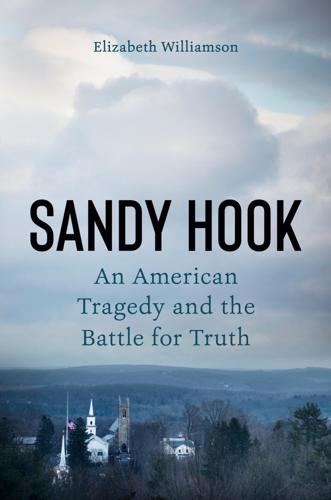
Sandy Hook: An American Tragedy and the Battle for Truth
by
Elizabeth Williamson
Published 8 Mar 2022
Students recorded the shots from Cruz’s AR-15 rifle, the bloodied bodies, and the chaos on their cell phones, and soon channeled their grief into furious protest. The Parkland kids galvanized young people and gun violence survivors to demonstrate in more than eight hundred cities around the world on March 24, 2018, under the banner “March for Our Lives.”[6] Nearly two hundred thousand marched at the main event in Washington, demanding Congress act to end the gun violence killing scores of them each year. March for Our Lives grew into a durable national movement. Not since Sandy Hook had a mass shooting created such a groundswell against gun violence. But unlike after Sandy Hook, the hunting of Parkland’s survivors by conspiracy theorists came as no surprise.
…
They later learned that Ussery, a convicted felon, had a semiautomatic pistol hidden in his pickup truck.[3] He was jailed on weapons and other charges.[4] Mann was sent to a mental health facility for evaluation.[5] The same film depicted Alex Jones targeting David Hogg, a Parkland survivor and March for Our Lives organizer. Jones aired a news clip of Hogg relaying his account of the shooting in a TV interview. “I know scripted PR when I hear it,” Jones said. He was repeating almost verbatim the false claims he’d leveled against the Sandy Hook families a half decade earlier. Hogg, not yet eighteen at the time, shrewdly saw Jones’s shopworn claims for what they were.
…
BACK TO NOTE REFERENCE 4 Tom Jackman, “Father of Slain Journalist Alison Parker Takes on YouTube over Alleged Refusal to Remove Graphic Videos,” Washington Post, February 20, 2020, https://www.washingtonpost.com/crime-law/2020/02/20/father-slain-journalist-alison-parker-takes-youtube-over-refusal-remove-graphic-videos/. BACK TO NOTE REFERENCE 5 Troy Griggs, Jasmine C. Lee, Morrigan McCarthy, Brent Murray, Alicia Parlapiano, Joe Ward, and Josh Williams, “Photos from the ‘March for Our Lives’ Protests Around the World,” New York Times, March 24, 2018, U.S., https://www.nytimes.com/interactive/2018/03/24/us/photos-march-for-lives.html. BACK TO NOTE REFERENCE 6 Mark D. Wilson, “Man Sues Alex Jones, InfoWars for $1 Million, Says They Defamed Him in Fla. Shooting,” Austin American-Statesman, April 3, 2018, https://www.statesman.com/news/20180403/man-sues-alex-jones-infowars-for-1-million-says-they-defamed-him-in-fla-shooting.
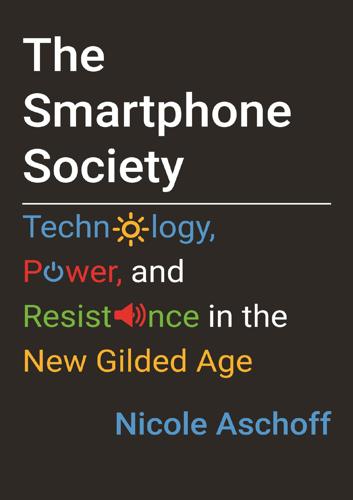
The Smartphone Society
by
Nicole Aschoff
The digital-analog quality of these movements also ties them to each other and to millions of ordinary people. These ties are visible in the movements’ networks of support and inspiration. Black Lives Matter and Bernie Sanders were both vocal supporters of the Standing Rock protests. Young members of Sunrise cite Occupy, BLM, March for Our Lives, and United We Dream, a youth-led immigration justice organization, as sources of inspiration.41 Congresswoman Alexandria Ocasio-Cortez of New York was inspired to run for elected office by a visit to the Standing Rock camp and is a champion of Sunrise. She worked for the Bernie Sanders campaign and is a member of Democratic Socialists of America, an organization that went from a sleepy five thousand members in early 2016 to more than sixty thousand today.42 The shared networks of people and supporters that undergird these movements are also increasingly connected by a critique of capitalism.
…
“Abrams, Jenna,” 109 ACLU (American Civil Liberties Union), 21, 22, 96, 148–49, 153, 176n28 Acxiom, 72, 77 addiction to social media, 65–69 Admiral, 78, 79 Adolfsson, Martin, 84 AdSense, 52 Advanced Research Projects Agency Network (ARPANET), 80 advertising: data collection and, 76–77, 83–84; on Facebook, 47–48; on Google, 52; political, 149 AdWords, 52 Afghanistan, politics in, 95–96 age discrimination, 149 AI Now, 129, 157 Airbnb, 42, 119, 120, 148 al-Abed, Bana, 90 al-Abed, Fatemah, 90 Aldridge, Rasheen, 91 algorithm(s): for consumer categories, 77; in dystopian future, 129–30, 131; in politics, 109–10; recommender, 67; search, 51–52, 53 algorithmic accountability, 151, 157–59 “algorithmic management,” 32–34 Alibaba, 4, 42 Allard, LaDonna Brave Bull, 104 aloneness, 7 Alphabet, 41, 55, 76, 122, 150 Alpha Go Zero program, 122 alter-globalization activists, 91 Amazon: acquisitions by, 41; and CIA, 81; in Europe, 150; marketplace model of, 150; as monopoly, 53–54; and new capitalism, 118–19; as new titan, 38–41, 44, 45; power of, 54–55; Rekognition software of, 149; tax evasion by, 49; warehouse workers at, 31–32, 33, 34; working conditions at, 46 Amazon Shopping, 30 Amazon Web Services (AWS), 41 American Academy of Pediatrics, 9 American Association of People with Disabilities, 55 American Civil Liberties Union (ACLU), 21, 22, 96, 148–49, 153, 176n28 American Dream, 120–21 American Library Association, 55 amplification, 91 analog networks, in cognitive mapping, 143 Android operating system, 39, 41, 53, 69, 70–71, 72 “angel investor,” 120 Ant Financial, 42 antidiscrimination laws, 149 antitrust laws and practices, 43–44, 52–53, 55, 150 AOL, data collection from, 81 app(s): top ten, 38 “app dashboard,” 69 app jobs, 30–34, 35, 137 Apple: data collection from, 81; in Europe, 150; low-paid workers at, 147; as new titan, 42; refusal of “right to repair” by, 155; supply chain of, 28–29; tax evasion by, 49–50; working conditions at, 46 appropriation, frontiers of, 73–76 appwashing, 34, 35, 146 “Arab Spring,” 97 Ardern, Jacinda, 93 ARPANET (Advanced Research Projects Agency Network), 80 artificial intelligence, 121–22, 123, 130 aspirational story, 120 assembly workers, 28–29 Athena, 42 AT&T, 29, 42, 43, 71 attention, 7 Audible, 41 Australia, justice in, 21 automation, 128, 131 automobiles, analogy between smartphones and, 2–3, 161, 162 autonomy, 117, 124 AWS (Amazon Web Services), 41 bad behavior, 138–39 Baidu, 42 Bannon, Steve, 105 Barlow, John Perry, 124 Bellini, Eevie, 24 Berners-Lee, Tim, 40 Beyoncé, 61, 107 Bezos, Jeff, 38, 44, 49, 54, 118–19 Bharatiya Janata Party (India), 93 big data, 76, 83–84, 145 Binh, Huang Duc, 95 black(s): police violence against, 17–23, 35, 169n6, 169n13 Blackberry, 6 “black-box algorithms,” 151 Black Lives Matter (BLM), 89–90, 100–102, 104, 107, 111 Blades, Joan, 91 blockchains, 124 body cameras worn by police, 22 book publishers, 172n40 boredom, 11 bots, 109 Boyd, Wes, 91 boyfriend, invisible, 24 Boyle, Susan, 63 Brazil, politics in, 97 Brin, Sergei, 38, 41, 54, 119, 148 Brown, Michael, Jr., 22, 89–90, 91, 101–2 Buffett, Warren, 41 Bumble, 23, 91 Bumblehive, 81 Burke, Tarana, 108 Bush, George W., 99 Calico, 41 California Consumer Privacy Act, 150 “CamperForce,” 31–32 Canales, Christian, 21 cancer, 7 candidates, social media use by, 103–5 Capital G, 41 capitalism: chameleonesque quality of, 116–17; crony, 105; and frontiers, 72–79; maps of, 143–44; neoliberal, 69, 102, 112–13, 117–18, 144–45; smartphones as embodiment of, 161–62; spirit of, 115–18; surveillance, 8 capitalist frontiers, government and, 80–81 carbon footprint, 82, 175n77 Carnegie, Andrew, 37, 54, 57 Castile, Philando, 20, 35 CatchLA, 62 caveats, 14–15 celebrities, in digital movements, 91 celebrity culture, 64–65 censorship, 95 Center for American Progress, 55 Center for Responsive Politics, 56 Central Intelligence Agency (CIA), 81, 95, 96, 138, 175n74 centrism, 112 Chadaga, Smitha, 89 change agent, 12 Chan, Priscilla, 56 Chan Zuckerberg Initiative (CZI), 56 Charles, Ashley “Dotty,” 109 Charlottesville, Virginia, 106–7, 111 Chesky, Brian, 120 children, 8, 9, 11–12, 84 China, 4, 42, 94–95 Chronicle, 41 CIA (Central Intelligence Agency), 81, 95, 96, 138, 175n74 Cienfuegos, Joaquin, 20–21 City of the Future, 124 Clinton, Bill, 43, 91, 99 Clinton, Hillary, 50, 107 Clooney, George, 91 “the cloud,” 82 cloud storage facility, 81 coercive relationships, 137–38, 152–54 cognitive maps and mapping, 143–59; algorithmic accountability in, 151; antidiscrimination laws in, 149; coercive and unjust relationships in, 152–54; defined, 143; digital and analog networks in, 143; digital commons in, 156–59; ecological externalities in, 145; economic implications in, 151–52; internet access for poor and rural communities in, 149–50; lacunae in, 145; low-paying jobs in, 146–49, 153–54; monopoly in, 150; political advertising in, 149; power in, 145; and principles of smartphone use, 152–59; privacy in, 150–51; selfish or immoral behavior in, 154–56; sociotechnical layers of, 145 collateral damage, 96 collective action, 155–56 Comcast, 29, 71 comic books, 11 commodification of private sphere, 144 Communications and Decency Act, 51 communities, on-line, 64 community broadband initiative, 149–50 Community Legal Services, 171–72n32 Compass Transportation, 147 Computer and Communications Industry Association, 55 “connected presence,” 6 connection, 44, 63–64, 143, 162 connectivity, 122 Connolly, Mike, 94 consumer(s): vs. producers, 28–29 consumer categories, 77 consumer scores, 77–78 consumption, 83, 138–39 content algorithms, 51–52 content creation, 74–79 contingent workers, 30 convenience, 29–30, 35 Cooperation Jackson, 155 cop-watch groups, 20–21 “The Counted,” 19, 169n6 “creative monopoly,” 44 creativity, 117 credit scores, 78–79 creepin”, 65 critiques, 7–8 crony capitalism, 105 CrushTime, 24 Cruz, Ted, 92 “Cuban Twitter,” 95 Cucalon, Celia, 48 Cullors, Patrisse, 100–102 cultural capital, 62 “custom breathers,” 69 “customer lifetime value score,” 78 “cyberspace,” 82 CZI (Chan Zuckerberg Initiative), 56 Dakota Access Pipeline Protests, 103–4, 110 dashboard apps, 132 data brokers, 72, 77 data centers, energy use by, 82 data collection, 70–72, 83–84, 137, 150–51, 156–59 data mining, 76–79 data ownership, 135–36 “data smog,” 72 Data & Society, 151, 179n20 data vendors, 76 datification, 156–57, 161 dating apps, 23–27, 35 decentralization, 101–2, 120 decommodification, 156–57 DeepMind, 41, 79, 122, 157 Deliveroo, 32–33, 153 Department of Homeland Security, 149 Desai, Bhairavi, 146 Descartes, René, 67 Diallo, Amadou, 19 Diapers.com, 41 dick pics, 25 Dick’s Sporting Goods, 91 digital-analog political model, 104, 110–12, 145, 162 digital commons, 139–41, 156–59 digital divide, 28–29, 35 “digital exclusion,” 29 digital frontier, limits of, 82 digital justice, 17–23, 152, 157, 169n6, 169n13 digital networks, 143 digital platforms, 44 “digital redlining,” 29 “digital well-being,” 69 disconnection, 132–33 discrimination in housing, 47–48 divides, 17–36; built-in, 28–34, 35; related to justice, 17–23, 169n6, 169n13; related to sexuality, 23–27, 35 division of labor, 74–75 Dobbs, Tammy, 129 documentation, 62 domestic violence, 25 DoorDash, 33–34, 146–47 dopamine driven feedback loops, 67 double standard, 25–27, 35 drone warfare, 95 “dual economy,” 12–13 dumbness, 7, 9 “dumb phone,” 1, 8, 132, 167n15 dystopian future, 125–26, 128–30, 131 eBay, 147, 148 Echo Look device, 84 ecological externalities, 145 ecological limit of digital frontier, 82–83, 175n77 economic crisis (2008), 98–100, 117–18 economic divide, 13–14 economic implications, in cognitive mapping, 151–52 economic nationalism, 105 “ecosystems,” 40 Eddystone, 78 education, 13 Edwards, Jordan, 18 Egypt, 92, 97 elderly Americans, 63–64, 84 Electronic Frontier Foundation, 55, 124 Elliot, Umaara, 90 Ellison, Keith, 45 emails: vs. phone calls, 6; scanning of, 70–71 Emerson, Ralph Waldo, 133 employment relationships, 137 encryption, 81, 175n74 energy consumption, 151–52, 154–55; by physical elements of digital life, 82, 175n77 entrepreneurship, 120–21 environmental justice, 154–55 Epsilon, 72 Equal Credit Opportunity Act, 78 Estrada, Joseph, 90–91 Europe, American tech titans in, 150 European Union (EU), 49, 52–53, 150–51 experience economy, 62, 83 exploitation of labor, 75 externalization of work and workers, 31 Facebook: acquisitions by, 41; addiction to, 66–67, 69; and antidiscrimination laws, 149; credit ratings by, 79; data collection by, 71–72, 76, 81, 84; demographics of, 84; discrimination in advertising by, 47–48; employees organizing at, 148; in Europe, 150; Free Basics by, 41–42, 50; low-paid workers at, 147; managing impressions on, 63; as monopoly, 53–54, 172n46; and new capitalism, 124, 136; as news source, 50–51; as new titan, 38–39, 40, 41–42, 44–45; power and influence of, 56; tax evasion by, 49; time spent on, 60 Facebook Live, 84 Facebook Pixel, 72 “Facebook Revolution,” 97 facial recognition software, 129, 149 Fair Housing Act, 48 fake news, 50–51, 56 Federal Bureau of Investigation (FBI), 149 feedback loop, 66–67 “Feminist Five,” 108 feminist movement, 107–8 Ferguson, Missouri, 89–90, 101–2 Fields, James Alex, Jr., 106 filter bubbles, 53, 109–10 financial crisis (2008), 98–100, 117–18 fintech companies, 78–79 flexibility, 117 FlexiSpy, 25 FOIA (Freedom of Information Act) requests, 149 food delivery apps, 32–33 food pictures, 62 forced arbitration, 148 Ford, Henry, 37, 124 Fordlandia, 124 Ford Motor Company, 37, 38, 44 Fowler, Susan, 126–27 FoxConn, 28 framing of analysis of cell phones, 12–14 Free Basics, 41–42, 50 Freedom of Information Act (FOIA) requests, 149 “free market” competition, 98 free speech, 138 Friedman, Patri, 124 frontier of social media, 59–86; addiction to, and fears about, 65–69; and big data, 82–86; characteristics of, 59–65; and government, 80–81; and privacy, 69–72; and profit, 72–79 Fuller, Margaret, 133 Galston, Bill, 45 gamification, 23–24, 146 Garza, Alicia, 100–102 Gassama, Mamoudou, 115 Gates, Bill, 56, 130 General Data Protection Regulation (GDPR), 150–51, 156 Geofeedia, 96 geopolitics, 95–96, 144 Germany, 3 Ghostbot, 24 gig economy, 137 Gilded Age, 1–2, 11, 54 global divides, 28–29 globalization, 98 Global Positioning System (GPS), 5 Gmail, 38, 71 Goodman, Amy, 104 Google: addiction to, 69; advertising on, 76; companies owned by, 41; data collection by, 70–71, 76, 81, 150; employees organizing at, 147–48; in Europe, 150; immoral projects at, 154; and intelligence agencies, 81; lobbying by, 55; low-paid workers at, 147; molding of public opinion by, 55; as monopoly, 52–54; and new capitalism, 119–20, 123, 136; as new titan, 38, 39, 40, 41, 43–45, 56; for online search, 52; power and influence of, 55–56; research funding by, 55; “summer camp” of, 55; tax evasion by, 49, 50; use by children, 84; working conditions at, 47 Google Calendar, 71 Google Chrome browser, 53 Google Drive, 71 Google Earth, 123 Google Fiber, 41 Google Images, 131 Google News, 50 Google Play, 72 Google Search, 38, 41, 53 Google Shopping Case, 52–53 Google Translate, 10 government: and capitalist frontiers, 80–81; and Silicon Valley, 124; surveillance by, 137–38, 144, 148–49 government tracking, 94–95 GPS (Global Positioning System), 5 Grant, Oscar, III, 18 Gray, Freddie, 22, 96 Great Pessimism, 118, 119 Great Recession, 118 Greece, 97 greenhouse emissions, 82 Green New Deal, 103, 151–52, 154, 179n22 Greenpeace, 157 Grindr, 23 gun violence, 90, 91, 110, 111 GV, 41 habitus, 62 Happn, 23, 24 Harari, Yuval Noah, 129–30, 132 Hearst, William Randolph, 50 Herndon, Chris, 56 Heyer, Heather, 106 Hirschman, Albert, 133 household expenses, 13 housing, discrimination in, 47–48 human, fear of becoming less, 67–68 iBeacon, 78 IBM, 149 ICE (Immigration and Customs Enforcement), 21, 148 ICT (information and communication technologies) sector, energy used by, 82 ideals, 120 “identity resolution services,” 77 ILSR (Institute for Local Self-Reliance), 149–50, 153 Immigration and Customs Enforcement (ICE), 21, 148 immoral behavior, 138–39, 154–56 impressions, management of, 62–63 income discrepancy, 12–13 independent contractors, 33–34, 137, 153 India, 4, 42, 60, 93 individualism, 117, 118 information and communication technologies (ICT) sector, energy used by, 82 injustice, 17–23, 169n6, 169n13 In-Q-Tel, 96 insta-bae principles, 61–62 Instacart, 30, 146 Instagram: addiction to, 69; content on, 60, 61, 62; creepin’ on, 65; data collection from, 72; demographics of, 61; microcelebrities on, 60; as new titan, 38, 41; time spent on, 60; value of, 74 Institute for Local Self-Reliance (ILSR), 149–50, 153 insurance companies, data mining by, 79 intelligence agencies, and capitalist frontiers, 81 internet: access for poor and rural communities to, 149–50; access to high-speed, 5, 29; creation of, 80; early days of, 40; government shutdown of, 94; smartphone connection to, 10 Internet Association, 45 Internet Broken Brain, 66 Internet.org, 41 Internet Research Agency, 109 internet service providers, and privacy, 71–72 inventions, new, 11 investors, 120–21 invisible boyfriend, 24 iPhone, 6, 42 Iron Eyes, Tokata, 104 Jacob’s letter, 127 Jacobs, Ric, 127 Jaffe, Sarah, 91 James, LeBron, 92 Jenner, Kris, 59 Jigsaw, 41 Jobs, Steve, 2, 6, 42 Joint Special Operations Command, 95 Jones, Alex, 111 Jones, Keaton, 109 justice, 17–23, 152, 157, 169n6, 169n13 Kalanick, Travis, 126, 127 Kardashian, Kim, 59 Kardashian, Kylie, 59 Kasky, Cameron, 90 Kattan, Huda, 60 Kellaway, Lucy, 1 Kennedy, John F., 88 Kerry, John, 56 Keynes, John Maynard, 117 Khosla, Sadhavi, 93 King, Martin Luther, Jr., 97 King, Rodney, 19 Klein, Naomi, 104 Knight First Amendment Institute, 93, 175n14 Knoll, Jessica, 108 Kreditech, 78–79 Kristol, Bill, 45 Kurzweil, Ray, 123 Lanier, Jaron, 67, 70, 135 Lantern, 95 law enforcement, surveillance by, 96–97, 137–38, 176n28 “leaners,” 29 Lean In (Sandberg), 107 Lehman Brothers, 98 Levandowski, Anthony, 123 LGBTQ community, 10, 64 “lifestyle politics,” 133 “like” button, 66 Lind, William, 105 “listening tour,” 56 Liu Hu, 94 live chats, 5 livestreaming of police violence, 20–21 lobbying, 55, 56 location data, 71 logistics workers, 31 Loon, 41 Loop Transportation, 147 Losse, Katherine, 124 love, 23–27, 35 low-income households, access to high-speed internet by, 29 low-paying jobs, 146–49, 153–54 Luxy, 23 Lyft 30, 31, 33, 146, 153 Lynd, Helen, 2, 3 Lynd, Robert, 2, 3 Lynn, Barry, 56 machine learning, 76, 121–22, 174n52 “machine zone,” 8 Macron, Emmanuel, 93 mainstream media, bypassing of, 91 Ma, Jack, 42 Makani, 41 mamasphere, 64 March for Our Lives, 104 March of the Margaridas, 108 Marjorie Stoneman Douglas (MSD) High School, 90 marketification, 161 Markey, Ed, 152, 179n22 marriage, expectations and norms about, 24–25 Marshall, James, 17–19 Marshall, Tanya, 17–19 Martin, Trayvon, 22, 100 Marx, Karl, 67 mass shootings, 90, 91, 110, 111 Match.com, 23, 24 Match Group, 24 Matsuhisa, Nobu, 62 Maven, 147–48 McDonald, Laquan, 18 McInnes, Gavin, 106, 107, 111 McSpadden, Lezley, 101 meaning, sense of, 64–65, 162 Medbase200, 77 men’s work, 75 mental health of children, 8 meritocracy, 121 Messenger: data collection from, 72 Messenger Kids, 84 metadata, 72 #MeToo movement, 108 microcelebrities, 60 microchoices, 69 Microsoft: and City of the Future, 124; data collection from, 81; employees organizing at, 148; in Europe, 150; immoral projects at, 154; as new titan, 42, 43, 55, 56 Middleton, Daniel, 60 “Middletown,” 2–3 Middletown: A Study in Contemporary American Culture (Lynd and Lynd), 2–3 military, 80–81, 95 mind-body divide, 67–68 miners, 28 Minutiae, 84 misogyny, 25 Mobile Devices Branch of CIA, 81, 95 Mobile Justice MI app, 21, 169n13 Modi, Narendra, 93 Mondragon, Elena, 22–23 monetization, 59, 79 money accounts, mobile, 10 monopolies, 43–46, 52–53, 150 Morgan, J.
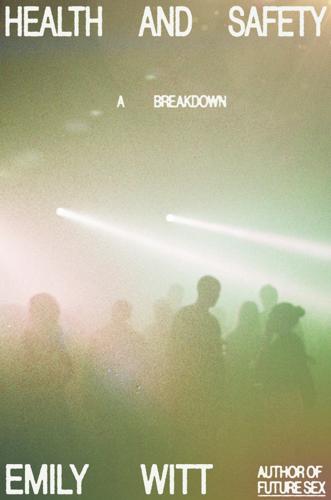
Health and Safety: A Breakdown
by
Emily Witt
Published 16 Sep 2024
The television correspondents doing stand-ups next to the angel-shaped memorials in Pine Trails Park were as lurid in their makeup and bold-colored sheath dresses as exotic birds; the students kept having to ask the news organizations to stop flying helicopters overhead, since it reactivated memories of the response to the shooting. In a matter of days, the student leaders who started what became the March for Our Lives movement were household names: David Hogg, Cameron Kasky, Jaclyn Corin, each of them preternaturally telegenic, having skipped over the awkward phase of adolescence. The students, who quickly understood the power they held over the reporters vying for access, urged us not to give the shooter notoriety by naming him.
…
The meeting was not specifically about gun rights—it touched on the threats of a US government takeover by the United Nations; socialism; the problems with public education; and the decline of shame as a motivating principle—but guns kept coming up. I watched a PowerPoint presentation entitled “Government Schools Are Sexualizing, Perverting, and Confusing Children,” where a photograph of David Hogg, the gun control activist from Parkland, was captioned, “Government schools are indoctrinating children such as David Hogg of March for Our Lives against God, guns, and freedom, and then using them to transform America.” Yes, it was the government schools that had turned Hogg against guns, not a gun massacre. The bishop of the New Life Harvest Church in Richmond anointed the attendees with holy oil in advance of the rally. “They will be the interventioners that will stop evil and stop confusion and stop antifa and stop white nationalists and stop anybody who wants to do evil on that day,” he intoned.
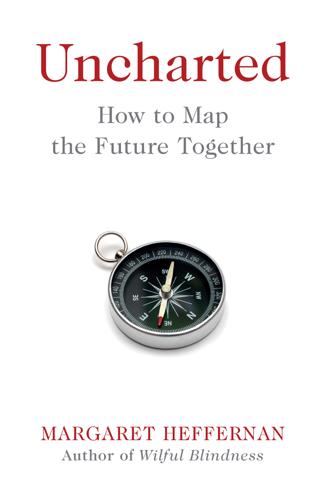
Uncharted: How to Map the Future
by
Margaret Heffernan
Published 20 Feb 2020
Talking to AIDS activists and historians, I was wary of suggesting parallels; I didn’t want to belittle such immense suffering and achievement. They, of course, were bolder in their thinking, having already identified similarities between the threat they had confronted and those we face today. David France smiles, thinking about American school shootings and the high school students running the March for Our Lives against the National Rifle Association. ‘Those Parkland kids, their die-in at a grocery store chain where the executive had a role in the NRA: their technique and strategy are lifted straight from this. There have been die-ins before, but ACT UP made it into an art form! It helps that these kids feel their personal peril, they were mowed down.
…
Stanley, 3 McKinsey, 30, 247 Macmillan, Harold, 53 MacMillan, Margaret, 55, 61 McNamara, Robert, 54 Macy’s, 117 Madrazo, Julio, 167, 170 Maginot Line, 52 Maguire, Eleanor, 42–6, 181, 314 Manchester University, 139 Mandela, Nelson, 166, 258 Manningham-Buller, Eliza, 85, 86–8, 103, 221 March for Our Lives, 268 market prediction, 20 Martínez, Xavier, 228–30 Marx, Karl, 51 Massachusetts General Hospital, 128 Matisse, Henri, 226, 278 Matthews, Paul, 251–2 Mbeki, Thabo, 258 Meer, Simon van der, 207 memory, 43–6, 181, 184, 201–2 Mendel, Gregor, 82–3 Merck and Abbott, 265, 266 MERS, 298, 302 metaphor, 17, 44, 60, 279 Methuselarity, 280 Mexico Posibles, 169, 171–2, 175 Meyer, Michael, 193 Michael & Susan Dell Foundation, 129, 132, 135–7 Microsoft (MS), 35, 230, 247, 249 Middlesex Hospital, 259 MI5, 85–7, 221 Mine of Information (MOI), 210 Miners’ Strike, 264, 270 Ming, Dr Vivienne, 70–2, 81 Miró, Joan, 226 MIT, 101 Mitchell, David, 191 Miyake, Issey, 151 moderation, 20 modernism, 226 MOMA, 186 monoculture, 109 Montagnier, Luc, 259 Montgomery-Massingberd, Gen.
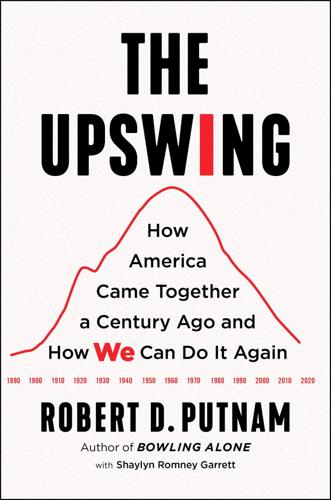
The Upswing: How America Came Together a Century Ago and How We Can Do It Again
by
Robert D. Putnam
Published 12 Oct 2020
Social Gospelers such as Walter Rauschenbusch reframed Christianity itself as a social movement—a blueprint for the building of a more just society. Today we are seeing a similar drive to uncover corruption, expose exploitation, and lay bare the dark underbelly of the “I” society in which we now live. And we are also hearing calls for reform framed in increasingly urgent and moralistic terms. The 2018 March for Our Lives, in which 1.2 million people gathered at over 880 events in the US and across the globe to protest gun violence and school shootings, is but one example. As is the Families Belong Together initiative, calling for an end to the Trump administration’s inhumane treatment of immigrants in border detention facilities.
…
.: assassination (1963), 178, 307 Civil Rights movement and, 232–33, 268 on cultural individualism vs. community needs, 11–12, 178 election of 1960 and, 79, 81, 232–33, 302 New Frontier, 12, 302 Presidential Commission on the Status of Women, 268, 282 taxation and, 55 Kennedy, Robert F., 307–8 Kerner Commission (1967), 238, 425n133 Kerouac, Jack, 182 Killen, Andreas, 304 Kinder, Donald, 241–42 King, Martin Luther, Jr., 130–31, 232 assassination (1968), 237, 238, 307, 308 “beloved community,” 180, 244 Birmingham Letter (1963), 178–79 “I Have a Dream” speech (1963), 177, 236 Kirkpatrick, Rob, 304 Kiwanis, 114, 117, 118 Kloos, Karina, 237–38, 243 Kloppenberg, James, 167, 173 Knights of Columbus, 115, 118, 119, 323 Knights of Labor, 49 knowledge economy, 44 Korean War, 81 Kroc, Ray, 117 Krugman, Paul, 65 Ku Klux Klan, 218 Kurlansky, Mark, 304 La Follette, Robert, 327 Lancet, The, 42–43 Landon, Alf, 76–77 La Rochefoucauld, François de, 236 Lasch, Christopher, 194 Latinos, 410n1 gender pay equity, 259 and I-we-I curve, 14 religious engagement, 140, 393nn85–86 see also immigrants and immigration; racial equality/inequality Lavender Scare (1950s), 180 League of Women Voters, 119, 120 Lennon, John, 306 Leo XIII, Pope, 132, 168 lesbian rights, 279 Levin, Yuval, 437–38n16 Levitsky, Steven, 106 libertarianism, 437n9 collective norms vs., 46 New Right (1960s), 62, 81, 186–91 see also cultural individualism vs. community needs; first Gilded Age (late 1800s); Great Divergence (mid-1970s–); second Gilded Age (late 1900s); social solidarity vs. isolation life expectancy, 27–28 “deaths of despair,” 43–44 in the first Gilded Age (late 1800s), 7 Great Divergence (mid-1970s–) and, 42–44 racial equality/inequality and, 202, 204–5, 240 Lilla, Mark, 299 Lincoln, Abraham: assassination, 166 Republican Party and, 78, 201 Whig communitarianism and, 166, 171, 197 see also Civil War Lindert, Peter H., 33, 35, 40, 42, 202, 209 Lions Club, 114, 117, 120 Lippmann, Walter, 110, 317–18, 329, 330, 339 literature: New Left, 188–89 New Right, 186–88 Ngram analysis of books, 169–70, 172–73, 175–76, 190–95, 197–98, 402–3nn18–23, 439n27 1920s/“Lost Generation,” 174 1950s, 182–84, 186–87, 188, 308, 442n55 1960s, 188–89, 302–4, 305 Lonely Crowd, The (Riesman), 182 Looking Backward (Bellamy), 315–16, 317 Lord of the Flies (Golding), 182, 308, 442n55 MacKinnon, Catharine, 264 macrohistory, 19, 245–46, 286, see also I-we-I curve(s) Madison, James, 69, 102 “makers” and “takers” meme, 187 Maloney, Thomas N., 210–11 Manduca, Robert, 211 Man in the Gray Flannel Suit, The (Wilson), 182 Manson, Charles, 308–9 March for Our Lives (2018), 328 March on Washington: of 1963, 177, 227, 232 Women’s March (2017), 333 Marcuse, Herbert, 188 Mare, Robert, 154 Margo, Robert A., 207, 211–12 Margolis, John, 304 marriage, 145–54, 157–58 average age of, 146–51 cohabitation vs., 152–53 “companionate,” 150–52, 274 divorce and, 152, 253, 278, 280 economic equality/inequality and, 153–54, 156–57 education and, 154 gender equality/inequality and, 246, 252, 254–57, 259–60, 262–65 generational differences and, 146–48, 152 I-we-I curves, 147–50 politics and, 98, 381n90 racial intermarriage, 218 religion and, 134 singletons vs., 146–47, 153, 157 social class and, 153–54 Marshall, Thurgood, 231–32, 233 Marxism, 172, 287 Masons, 115, 116, 121 Massey, Douglas, 39 McAdam, Doug, 237–38, 243 McCall’s magazine, 151 McCarthy, Joseph, 81, 180, 307–8 McCarty, Nolan, 86, 100, 102 McClure’s Magazine, 327 McDonald’s, 117 McGovern, George, 83 McKinley, William, 72, 74, 372–73n17 Mead, Margaret, 282 “Me Decade” (Wolfe), 197–98, 301, 311 media/communication: advertising in, 6–7, 25, 177, 278, 310 in the first Gilded Age (late 1800s), 2–3, 5, 6–7 internet, see internet; social media political polarization and, 101 Progressive Era muckrakers, 129, 167, 325, 327 racism in, 218, 417n64 television, 52, 151 see also literature Medicare, 59, 82 #MeToo movement, 277, 328 Millennials, 134, 141, 148, 156, 273–77, 314 Miller, Arthur, 184 Miller, William, 144 Mills, C.
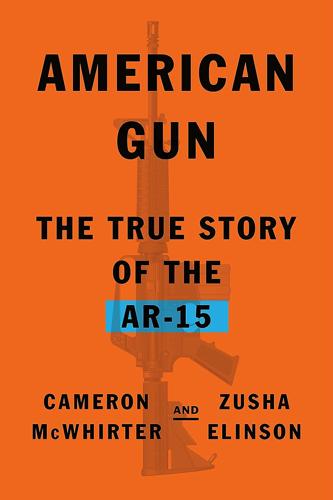
American Gun: The True Story of the AR-15
by
Cameron McWhirter
and
Zusha Elinson
Published 25 Sep 2023
One month after the shooting, the liberal group that had organized massive women’s marches after Trump was inaugurated called for a national walkout by students and teachers. Tens of thousands of students left classrooms to stand outside for seventeen minutes, one minute for each person killed at Parkland. Parkland students and supporters created a new organization called March for Our Lives. It held protests in Washington and across the United States and even overseas. The marches and rallies drew about 1.2 million people, making it one of the largest days of protest in U.S. history. Celebrities, including George Clooney, Oprah Winfrey, and Steven Spielberg, gave money. An emotional peak of the Washington rally was the speech given by González, who paused remarks for the amount of time that the shooter took to fire his gun in Marjory Stoneman Douglas.
…
Companies responded to customer anger by severing ties with the NRA. Delta and United Airlines eliminated discount travel programs for NRA members. Hotels, car rental companies, insurance companies, banks, cybersecurity companies, and even a hearing-aid company severed relationships with the group. The March for Our Lives organization released a comprehensive blueprint to reduce gun violence and mass shooting, which included a permanent federal assault-weapons ban. Groups of Parkland students traveled the country, addressing throngs of other students and supporters on a “Road to Change” tour. The giant movement was the result of pent-up frustration over how little had been done to stop disturbed young men turning to AR-15s to lash out and kill.

Home Grown: How Domestic Violence Turns Men Into Terrorists
by
Joan Smith
Published 5 Apr 2019
* Marjory Stoneman Douglas High School, Parkland, Florida This section of the book ends with the Marjory Stoneman Douglas High School shootings for two reasons: the suspect’s lengthy history of domestic violence and the fact that the massacre marked a watershed, inspiring teenage survivors to launch a powerful campaign for more effective gun control. They lobbied local politicians, persuading the Governor of Florida, Rick Scott, to raise the minimum age for buying firearms in the state from eighteen to twenty-one – a small but significant step towards restricting gun ownership – and organised a ‘march for our lives’ in Washington which was attended by hundreds of thousands of people. Emma González, an eighteen-year-old survivor, read out the names of her murdered classmates and described all the things they wouldn’t be able to do because their lives had been cut short. She and other leaders of the #NeverAgain movement appeared on the cover of Time magazine, capturing the public imagination and putting the National Rifle Association on the back foot.
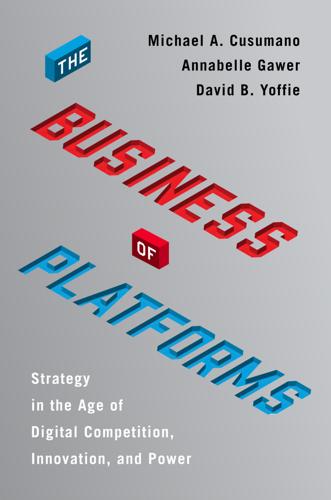
The Business of Platforms: Strategy in the Age of Digital Competition, Innovation, and Power
by
Michael A. Cusumano
,
Annabelle Gawer
and
David B. Yoffie
Published 6 May 2019
For most of our existence, we focused on all the good that connecting people can bring. As Facebook has grown, people everywhere have gotten a powerful new tool to stay connected to the people they love, make their voices heard, and build communities and businesses. Just recently, we’ve seen the #metoo movement and the March for Our Lives, organized, at least in part, on Facebook. After Hurricane Harvey, people raised more than $20 million for relief. And more than 70 million small businesses now use Facebook to grow and create jobs. But it’s clear now that we didn’t do enough to prevent these tools from being used for harm as well.
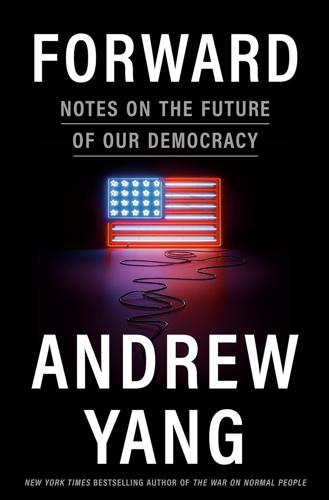
Forward: Notes on the Future of Our Democracy
by
Andrew Yang
Published 15 Nov 2021
A group of women who christened themselves “the Sorority of Yang,” or SOY, rented a house in Davenport that hosted sixty volunteers from out of state. SOY started when Katy Kinsey from Washington, D.C., and Dani Hernandez from Chicago met online and realized that having a big house would facilitate volunteers. Cam Kasky from March for Our Lives arrived and held events on our behalf. Thomas Wu from Portland, Oregon, dislocated a kneecap slipping on the ice while canvassing in Oskaloosa and kept on working. I would see volunteers at every stop; it was invigorating and exciting. It filled me with gratitude every time, seeing someone who had come to Iowa to fight for the campaign.
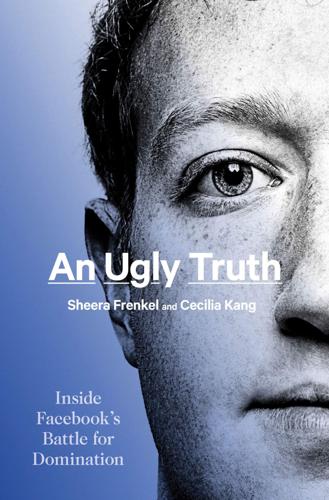
An Ugly Truth: Inside Facebook's Battle for Domination
by
Sheera Frenkel
and
Cecilia Kang
Published 12 Jul 2021
An entourage of Facebook executives—Joel Kaplan, Colin Stretch, and several lobbyists—sat behind the CEO, wearing grim expressions. “Facebook is an idealistic and optimistic company,” Zuckerberg said in his opening remarks. He presented a benevolent picture of the social network as a platform that had spread awareness of the “MeToo” movement and helped student organizers coordinate the March for Our Lives. After Hurricane Harvey, users had raised more than twenty million dollars on Facebook for relief, he added. “For most of our existence, we focused on all the good that connecting people can do.” It was Zuckerberg’s first appearance before Congress, and he faced a hostile audience. Hundreds of spectators, lobbyists, and privacy advocates had gathered outside the hearing room in a line that snaked around the marble halls.
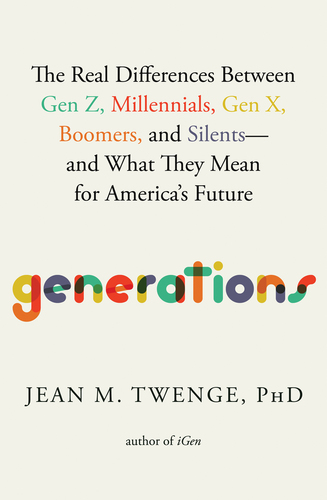
Generations: The Real Differences Between Gen Z, Millennials, Gen X, Boomers, and Silents—and What They Mean for America's Future
by
Jean M. Twenge
Published 25 Apr 2023
“Our generation has been born into a lot of trauma and a lot of civil unrest around people being frustrated with things. And I think because of that, our generation naturally thinks about things in a bit of a different way.” Frost came to the campaign with a background in protesting, having served as a director of the March for Our Lives movement of young people advocating for gun control. Although conservativism is usually associated with keeping the status quo, even some conservative Gen Z candidates advocate for change. “Some of these more progressive candidates are just a reflection of the system that exists and it’s the exact system I’m trying to fight against,” said Karoline Leavitt (b. 1997), who secured the Republican nomination in her New Hampshire congressional district but lost in the general election in 2022.